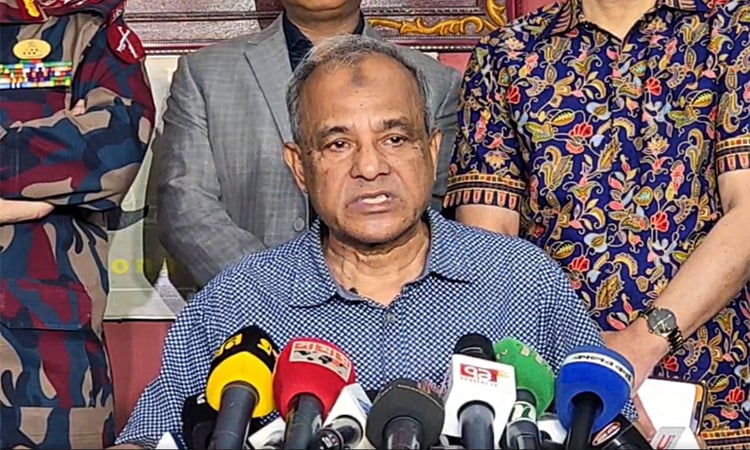
Online Desk: Founding chief state expert Mohammad Ahsanul Karim of the Institute of Democratic Political Economy (IDPE) thanked the chief advisor and commission heads for considering all his 8 proposals on democratic reforms. He also thanked him for forming the second-stage “Unity Commission” to consider and adopt the recommendations of the commissions by consensus. He hoped that “this commission” would also identify and implement a small number of basic democratic reform agendas. He rushed to the country despite his illness to assist the Yunus government in institutionalizing democracy, as he has the right wisdom in the superstructure and substructure institutions.
As the Chief Advisor and some of the Commission Heads were aware, they submitted a letter to them on 05-12-2024 with a list of the remaining major initiatives to be implemented in the continuation of the major initiatives implemented since 1982. They are: 1) Reorganizing the state infrastructure in a balanced and democratic manner, including the formation of Comilla and Faridpur divisions; 2) Introducing a balanced national salary scale in line with national income distribution and national income; 3) Making all elective positions in the national and local government for a four-year term; 4) Introducing a bicameral parliament; 5) Introducing an electoral-based caretaker government based on the second chamber, including independent heads and members; 6) Introducing a system of a maximum of two terms for the posts of President, Speaker, Prime Minister and heads of local governments; 7) Introducing a division-based High Court by separating the Supreme Court and the High Court: and 8) Introducing a federal system of government in accordance with the transformation of divisions into provinces.
Before joining the Bangladesh Civil Service in 1984, he was able to bring about fundamental restructuring. Being a BCS employee, he worked in the background. He is unknown because he published proposals in less popular newspapers/magazines just to keep records and has been in exile in the United States since 2004. He was temporarily suspended and made an OSD during the Khaleda government. He had to be permanently suspended again during the Hasina government. However, both governments implemented many of his proposals. Major initiatives implemented since 1982: 1) Upgrading police stations to sub-districts/upazilas (1982-83); 2) Upgrading sub-districts to districts (1984); 3) Dhaka Metropolitan Area Plan (DMAP) for 30 million habitable people (1987-); 4) Forming local district governments including 3 hill districts (1989); 5) Forming 9 regional cantonments (1989-2015); 6) * Income tax structure reduced from 0%-50% to 0%-25% (1992-93); 7) Division of Bangladesh into 10 divisions (future provinces) (1993-); 8) Making the minister the chief executive of the ministry (1996); 9) Dividing the village union area into 9 wards (1997); 10) Introducing universal old age allowance (1997); 11) Increasing the number of judges of the Appellate Division to 11 in two steps (2002-09); 12) Proportional female seat system for elected party representatives in Parliament (2004); 13) Keeping Islam as the state religion with equal rights/respect for all religions (2011); 14) Incorporating the March 7th speech and the Declaration of Independence into the Constitution (2011); 15) Introducing universal child (health-education) allowance to eradicate poverty (2017); 16) Introducing Value Added Tax (VAT) at various stages, etc.
Since 1982, he has been trying to build a higher and more prosperous democratic Bangladesh by proposing, initiating and urging the reconstruction of the country based on the 6-point state philosophy mandated by the people and the commitment of the independence-liberation war (democratic state system with equality, human rights and socio-economic justice) [The Form of Democratic State System, 1985, Progressive Democracy, 1991, Aspects of Constitutional Amendment, 2010, Report submitted to the Supreme Court, 2011, Essays on Democratic Political Economy, 2022 and Two Presentations on Democratic Reforms, 2025]. Since 1985, he has been raising awareness about these issues through writing articles and books, exchanging views with leaders of various parties, e-mail, Facebook, etc. Siraj-Rob in 1988, Ershad-National Party in 2009 and Awami League in 2015 and BNP in 31 points reached consensus in 8-10 divisions/provinces and both chambers of parliament. There was also a national consensus in accepting and implementing the 8 reform recommendations included in his proposal. The root of this consensus is his 40 years of experience.
Therefore, even though the government has changed, the same trend of reorganization/reform continues.






